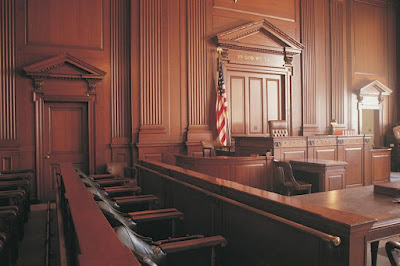(CNN) -- The death of Supreme Court Justice Ruth Bader Ginsburg less than two months from the presidential election has forced a reexamination of Republicans' 11-month blockade of Merrick Garland in 2016.
Senate Majority Leader Mitch McConnell said in a Friday night statement that President Donald Trump's nominee to replace Ginsburg will get a vote in the Senate. Doing so would be a complete reversal of his position in 2016, when the GOP-led Senate refused to hold a hearing or vote on then-President Barack Obama's nominee, saying it was too close to the election.
McConnell digs in
Justice Antonin Scalia, who had been a conservative stalwart on the Supreme Court since being nominated by then-President Ronald Reagan in 1986, died on February 13, 2016.
Within hours -- as other senators were offering condolences to Scalia's family -- McConnell issued a stunning, categorical rejection of Obama's authority more than 11 months before the Democrat's replacement would be sworn into office.
"The American people should have a voice in the selection of their next Supreme Court Justice. Therefore, this vacancy should not be filled until we have a new president," McConnell said.
The 'Biden rule'
Other leading Republicans followed McConnell's lead. A reason they frequently cited: What they called the "Biden rule." Joe Biden had said in a 1992 Senate floor speech -- when there were no high court vacancies to fill -- that "once the political season is under way, and it is, action on a Supreme Court nomination must be put off until after the election campaign is over."
McConnell never backtracked, despite Democrats' hopes that he would face political pressure to do so. On February 23, a week after Scalia's death and before Obama had nominated his replacement, McConnell said in a speech on the Senate floor that no Obama nominee would receive a vote.
"Presidents have a right to nominate, just as the Senate has its constitutional right to provide or withhold consent," the Kentucky Republican said. "In this case, the Senate will withhold it."
GOP members of the Senate Judiciary Committee that day signed a letter to McConnell saying they would refuse to hold hearings on any Scalia replacement until after a new president took office on January 20, 2017. Many Republicans cited the "Biden rule."
Obama picks Garland
In the ensuing weeks, Obama forged ahead, ignoring Republicans' insistence that no nominee would receive a hearing or a vote and chose Garland on March 16. His calculation was that a long-time jurist -- Garland, then 63, was the chief judge on the US Court of Appeals for the District of Columbia Circuit -- who was respected by both parties and had been previously confirmed by the Senate would be difficult to turn away.
"I hope they're fair," Obama said of Senate Republicans in the Rose Garden as he announced Garland was his choice. "That's all. I hope they're fair."
Republicans don't budge as Garland clock ticks
But Republicans did not budge, making clear on the day Garland was nominated that their position had not changed and he would not receive a vote.
"I think well of Merrick Garland. I think he is a fine person. But his nomination does not in any way change current circumstances," then-Utah Sen. Orrin Hatch said at the time.
Through the summer and fall, Senate Republicans continued to act as if no Supreme Court vacancy existed and no nomination had been made. On July 20, Garland broke the 100-year-old record of 125 days for the longest gap between a Supreme Court nomination and confirmation.
Supreme Court activity slowed drastically. The court -- mindful of potential 4-4 splits -- was reluctant to take on new cases.
Court turns into election flashpoint
The GOP's refusal to act on Obama's nominee turned the Supreme Court into a key political issue in November's general election between Donald Trump and Hillary Clinton. Trump on May 19, 2016, released a list of potential Supreme Court nominees -- a list shaped by conservative allies and aimed at soothe Republican voters' concerns over whether he would nominate right-leaning judges. The promise of anti-abortion, pro-gun rights and anti-LGBTQ rights judges motivated religious conservatives who might have had misgivings about Trump's character.
Less than two weeks after taking office, on January 31, 2017, Trump nominated Neil Gorsuch to fill Scalia's former seat on the Supreme Court. The Senate, where Republicans maintained a majority after the 2016 election, confirmed Gorsuch less than three months later, on April 7, 2017.
Source: CNN.com, Eric Bradner, September 20, 2020
⚑ | Report an error, an omission, a typo; suggest a story or a new angle to an existing story; submit a piece, a comment; recommend a resource; contact the webmaster, contact us:
deathpenaltynews@gmail.com.
Opposed to Capital Punishment? Help us keep this blog up and running! DONATE!
"One is absolutely sickened, not by the crimes that the wicked have committed,
but by the punishments that the good have inflicted." -- Oscar Wilde






.jpg)







